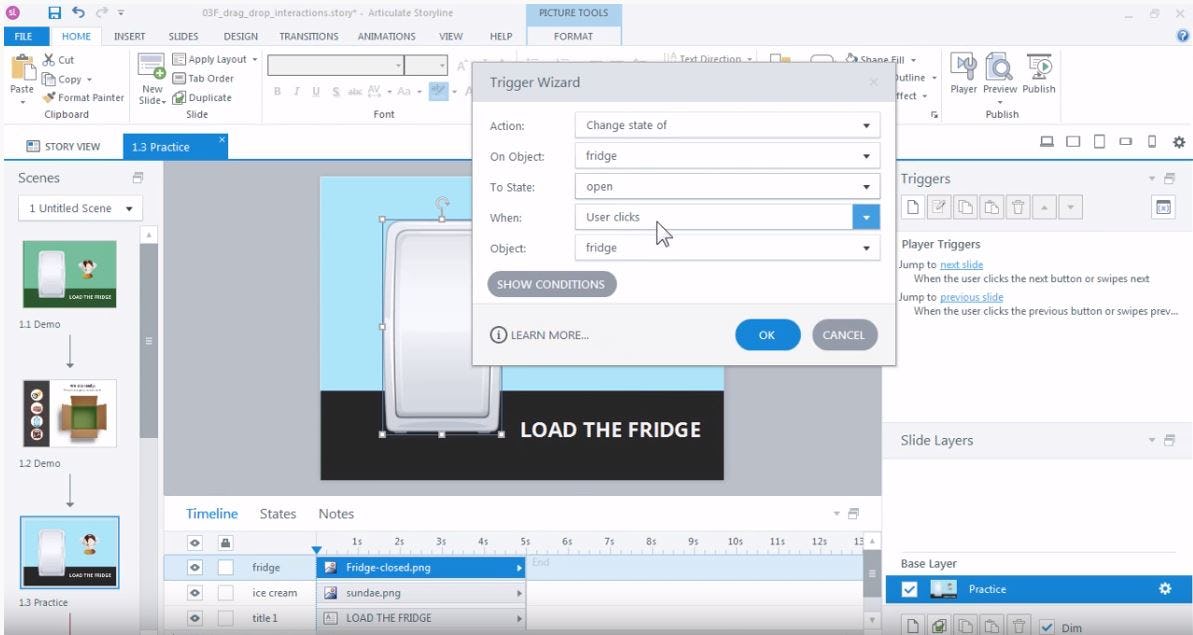The demand for responsive e-learning design capabilities has become paramount. Now, the market offers a range of tools catering to this need, each with its unique strengths and features. In this review, we'll explore some of the leading responsive e-learning authoring tools available, focusing on their key offerings and advantages in creating adaptive and engaging learning experiences.
Articulate Storyline 360
Articulate Storyline 360 stands as a stalwart in the e-learning industry, offering robust features for course development. While Storyline's focus has traditionally been on interactive and multimedia-rich content creation, its responsiveness has significantly improved with the introduction of Storyline 360. With the responsive player feature, courses built in Storyline 360 can adapt to different devices, adjusting content layouts and interactions for optimal viewing. Though its responsive capabilities have enhanced, some limitations in creating fully adaptive content remain, especially compared to tools explicitly designed for responsive design.
Adobe Captivate 2017
Adobe Captivate 2017 is another heavyweight in the e-learning authoring landscape, and it has made strides in enhancing its responsive design capabilities. With a mobile-friendly approach, Captivate 2017 offers fluid box responsive design, allowing for easy creation of adaptive content. This feature enables authors to design courses that automatically rearrange and resize content elements based on the screen size, facilitating a more consistent experience across devices. However, while Captivate's responsive design has improved, it may require a steeper learning curve compared to some other tools.
Elucidat
Elucidat stands out for its focus on creating truly responsive courses without compromising design flexibility. It emphasizes a mobile-first approach, enabling authors to build courses that adapt seamlessly to various devices. Elucidat's intuitive interface and pre-built responsive templates streamline the process of creating adaptive content, making it accessible to both seasoned developers and beginners. Its emphasis on collaborative authoring and analytics also adds value for teams seeking efficiency and insights into learner engagement.
Adapt
As highlighted previously, Adapt is an open-source e-learning authoring tool that excels in responsive design. Its strength lies in its adaptability across devices, offering a truly responsive framework without compromising content quality or functionality. Adapt's open-source nature fosters a customizable and community-driven approach to development, enabling users to tailor the tool to specific needs. Its focus on adaptability and cost-effectiveness makes it a strong contender for organizations seeking responsive e-learning solutions.
The current landscape of responsive e-learning authoring tools offers a variety of options catering to different needs and preferences. Articulate Storyline 360 and Adobe Captivate 2017 continue to evolve their responsive capabilities, albeit with some limitations. Elucidat stands out for its mobile-first approach and user-friendly interface. Meanwhile, Adapt, with its focus on true responsiveness and open-source flexibility, remains a compelling choice for those seeking adaptable, cost-effective, and community-driven e-learning solutions. As the demand for responsive design grows, these tools continue to shape the future of adaptive and engaging online learning experiences.

